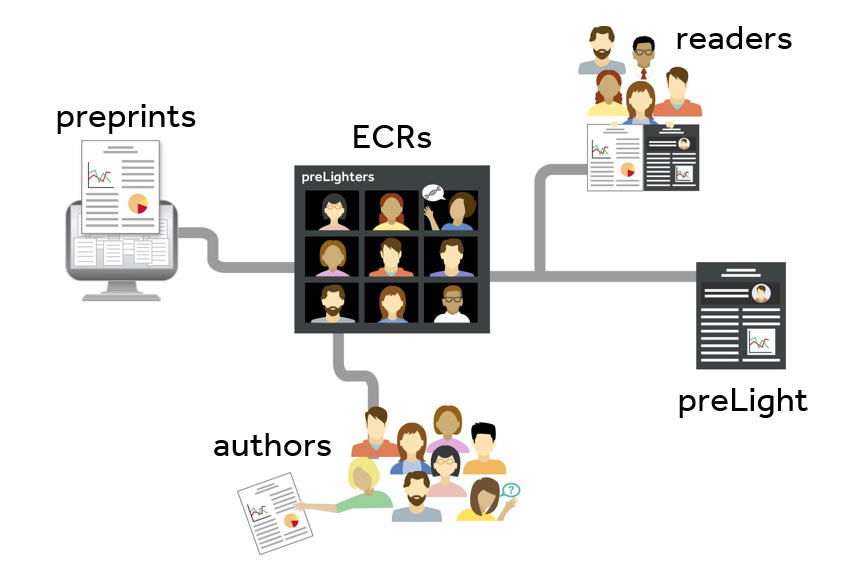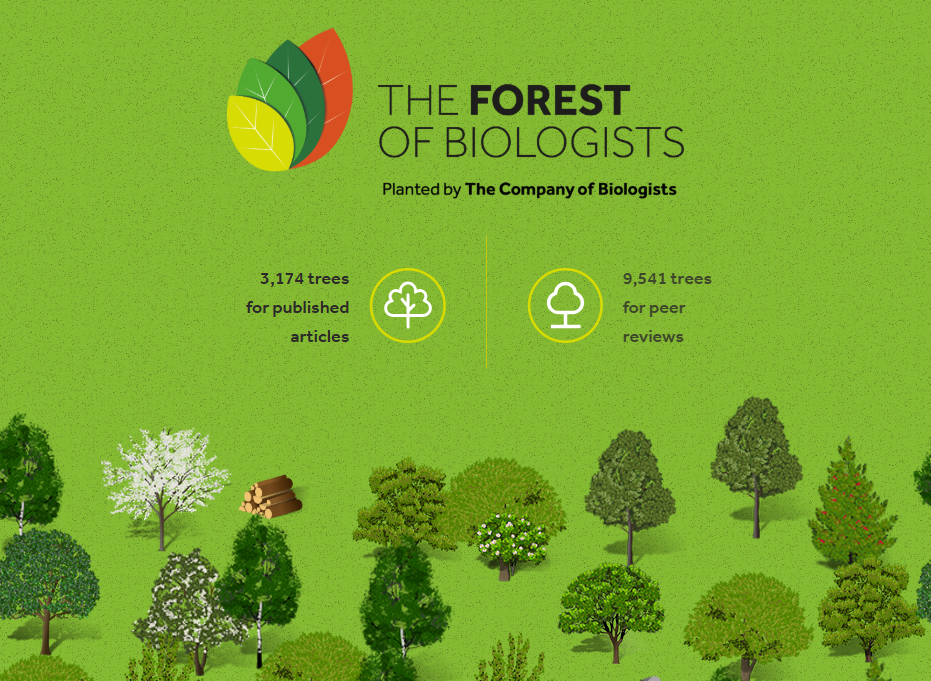Celebrating 100 years of supporting biologists.
August, 2025
Company of Biologists
2025 marks the 100-year anniversary of The Company of Biologists. As a not-for-profit publisher, sharing scientific knowledge and discoveries has always been at the heart of The Company of Biologists. The Company was set up in 1925 to save The British Journal of Experimental Biology, currently known as Journal of Experimental Biology. During 2025 we are sharing content and milestones with you from the five journals that we publish today: Development, Journal of Cell Science, Journal of Experimental Biology, Disease Models & Mechanisms and Biology Open.

100 years into our existence, we do much more than publish journals. We provide support to societies, conference organisers and individual researchers through our charitable grants and have a keen interest in supporting early-career researchers. We bring people together on our three community websites: the Node, preLights and FocalPlane. We also organise our own Meetings and Workshops, providing biologists with networking opportunities and a platform to share their latest research.
"We do much more than publish journals"
We are first and foremost a publishing organisation – our scientific publications are the reason we are still here today. But we have greatly expanded our reach over the years and our 100-year anniversary is as good a time as any to take a closer look at some of those activities. Being a relatively small, not-for-profit organisation comes with its challenges, but it can certainly also be an asset. We don’t have shareholders to answer to and there have been numerous occasions where our sole reason for starting a new initiative was for the good of the scientific community. We would like to put a spotlight on a few of those initiatives.
preLights
When preprints were becoming more common in the biological community there were still many questions as to how this was going to change the publishing landscape. We quickly realised that preprints were here to stay. They were a great help to researchers, but as the number of preprints grew, it was becoming increasingly difficult to find and filter relevant/interesting preprints. That’s why we launched preLights in 2018. We bring together a community of early-career researchers who advocate for preprinting and open science. Our community members, called preLighters, write news and views type summaries of recently preprinted research that is of interest to them and the wider biological community. This helps anyone interested in the field of biology keep abreast of the newest preprints out there. But importantly, it also gives the early-career researchers an array of networking opportunities and science communications experience.

Read & Publish agreements
In November 2019 we were one of the first not-for-profit publishers to launch a Read & Publish initiative. Our close relationships with the library community meant that we received some great feedback in the early stages, meaning that we could offer a tailored approach that we knew was giving our library and consortia partners exactly what they needed at a competitive price. The initiative went from strength to strength, and we are proud to say that we now have over 1,000 institutions signed up in 55 different countries, in addition to many library consortia. This is no mean feat for a small publisher, and we are proud to work closely with each of our customers. Our dedicated library hub offers tools and resources for our partners to help them grow the recognition and promotion of their individual agreements.
"One of the best Read & Publish agreements maintained by the library at the University of Seville is with The Company of Biologists"

Sustainability and The Forest of Biologists
Whilst publishing our journals, organising our events and providing our charitable grants, it became clear to us that sustainability was becoming more and more important in everything we did. Everyone was talking about wanting to be more sustainable and exploring what were practical steps that they could actually take to make a difference. But the world was not going to stop wanting journals or events. Researchers would still want to share their research, whether in a virtual setting or face-to-face. In 2020 we therefore launched The Company of Biologists’ Sustainability Initiative, which provides guidance and support on the sustainability of events. In addition to providing practical tips and tricks, event organisers can apply for grants up to £2,500 to support innovative ideas that will enable biologists to collaborate proactively whilst minimising their impact on the environment.
In 2023 we launched The Forest of Biologists – a living and growing forest that has been created as part of our biodiversity initiative, with support from the Woodland Trust. For each Research and Review article published in one of our journals, we are planting a native tree in a UK forest. We are also funding the restoration and protection of ancient woodland and dedicating these trees to our peer reviewers. And again, we worked closely with our partners, in this case a group comprising of both senior researchers and early-career researchers, to make sure that the project we were working on was geared towards the needs of our community. The support from our community for this initiative has been overwhelming. Our authors and reviewers love finding their dedicated tree in the virtual forest. Their contributions to science are now also making a real-life contribution to the protection of our environment.
We look back at these projects and wonder what more we will do in the next 100 years. The scientific publishing landscape is in constant flux and no one knows what the future holds. But one thing is clear: we could not have done it without the support from our community members. With every project and every new initiative, we are grateful to have built such positive relationships, whether it is with our authors, readers, or our library partners. Your input has been invaluable over the years. It goes to show that, even when you are a small organisation, when you work together, you can achieve great things.